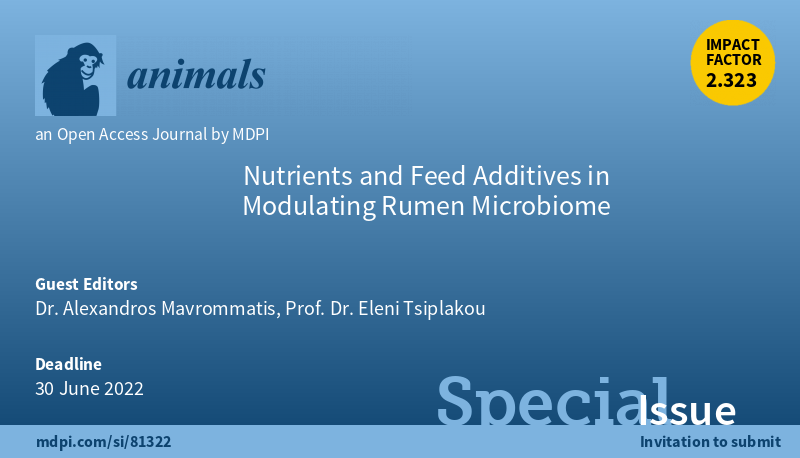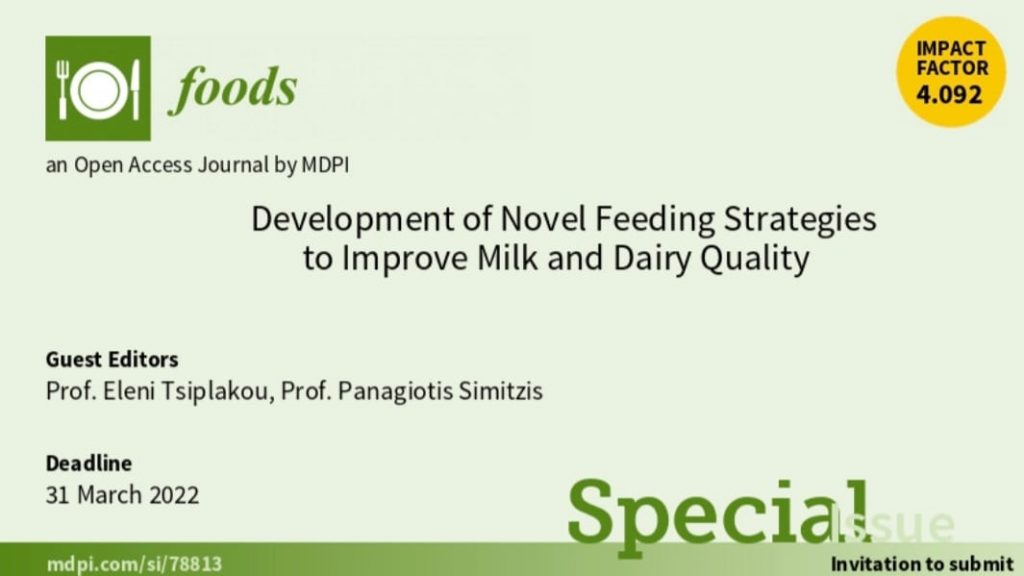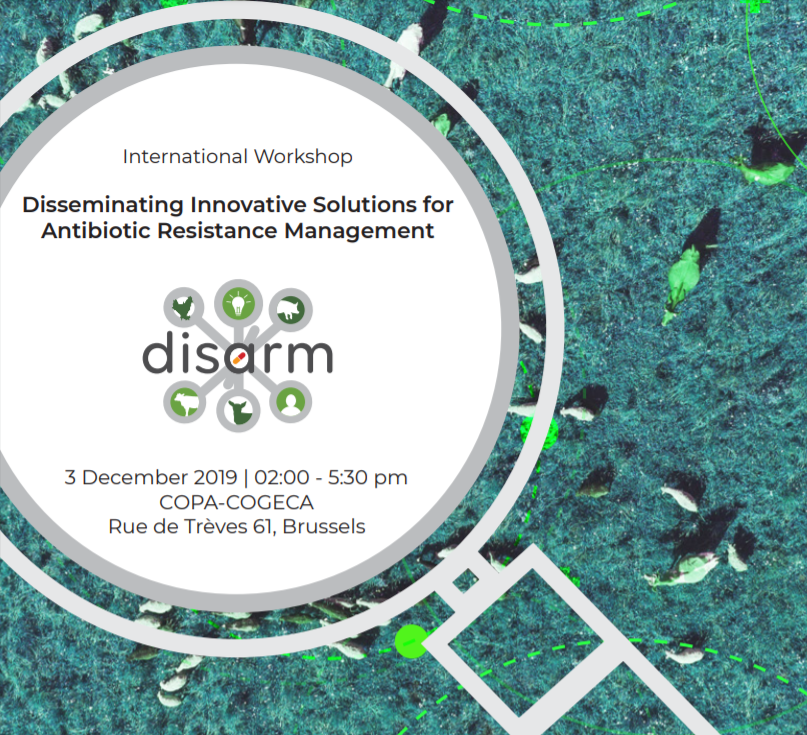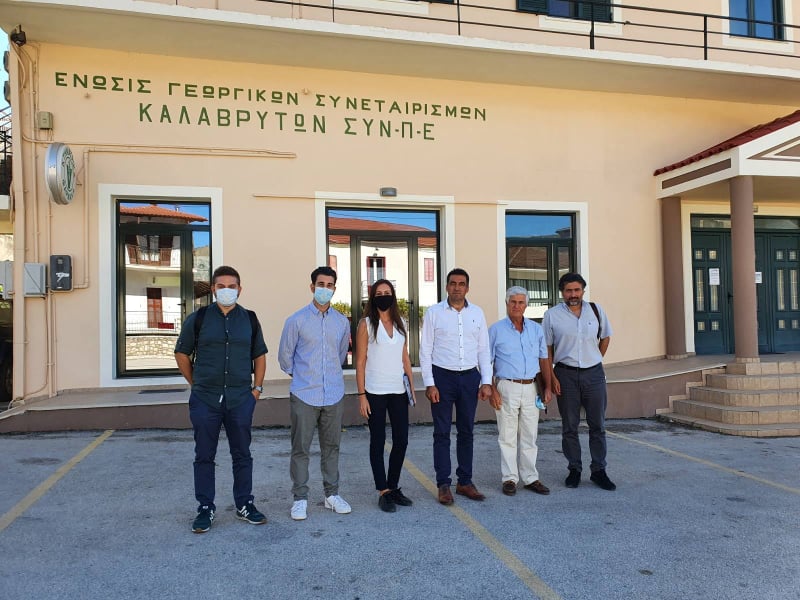Dr. Eleni Tsiplakou is a Full Professor at the Department of Nutritional Physiology and Feeding in the Faculty of Animal Sciences and Aquaculture of the Agricultural University of Athens, where she is teaching Ruminants Nutrition in undergraduate and postgraduate students. She received her BSc. Degree in Animal Sciences (2005), her MSc. (2006), and her Ph.D. in Animal Nutrition (2008) from the Agricultural University of Athens. She has conducted post-doctoral research at Reading University (2009) and at the Agricultural University of Athens (2010-2011) with Fellowship from the State Scholarship Foundation of Greece.
Dr. Eleni Tsiplakou (2016-2019) was the Vice-President of the Nutrition Commission of the European Federation of Animal Production (EAAP) while from 2010 to 2016 was secretariat in the above Commission. In 2017, she received the Young Scientist Award from the EAAP. She has published so far, 58 research papers in peer-review journals, and 100 abstracts in national and international conferences. She has principal investigator in 6 research projects and participated in 26 research projects, 5 of which are funded by the EU. She has gain 2 Scholarships from the National Scholarship Foundation of Greece for Postgraduate studies and Postdoctoral Research, and 3 from EAAP. She was chairperson in 5 International and 2 National Conferences. She is Section Editor in the Italian Journal of Animal Science, and Editorial Board Member in the Journal of Dairy Research, SciTz Nutrition and Food Science, and Gavin Journal of Food and Nutritional Science. She is, also, an active reviewer in a number of scientific journals (Journal of Dairy Research, Small Ruminant Research, Livestock Science, Animal, Lipids, Journal of Animal Science and Biotechnology, International Journal of Molecular Science, British Journal of Nutrition, etc). She has supervised 26 Bachelor, 5 MSc., and 6 Ph.D. theses and she has been member of the advisory board in 80 Bachelor, 13 MSc., and 17 Ph.D. theses. Moreover, she is external evaluator of research projects and Ph.D. theses.
News

According to population growth rate predictions, the global population is anticipated to reach 9.15 billion by 2050. Consequently, both dairy products and meat consumption are expected to increase in 2050 by 58% and 73%, respectively, compared to their 2010 levels, due to the aforementioned demands. At the same time, methane (CH4) emissions are expected to rise by 30% until 2050, as a result of meat and milk increasing demands if mitigation strategies are not implemented. Hence, concern on the unbalanced nature of this growth and its attendant environmental and socioeconomic consequences are rapidly increasing. These current challenges require the design of multidisciplinary approach strategies, particularly to mitigate greenhouse gas emissions and improve animal productivity and product quality. Several bioactive compounds such as seaweed, microalgae, agro-industrial byproducts, essential oils, oilseeds, phytogenic, etc. are studied as rumen engineering tools capable of shaping future livestock.
However, multitargeted strategies require holistic tools too. In this light, the advent of metaomics techniques such as the 16S rRNA sequencing provides a much broader genomic and functional perspective in rumen microbial ecology.
The aim of this Special Issue is to present recent research and reviews focused on the impact of novel feed additives and bioactive compounds on rumen microbiome communities. The Special Issue is not narrowed out to the cataloging of rumen microbial populations rather than an in-depth understanding of their biochemical function related to environmental impact, feed efficiency, product quality, and its perspective as a reservoir of antimicrobial resistance and pathogenicity genes.
We look forward to receiving your contributions.
Dr. Alexandros Mavrommatis
Prof. Dr. Eleni Tsiplakou
Guest Editors

Milk and dairy products contain biologically active compounds, such as high-quality proteins, vitamins, minerals and fatty acids that have been proven to have beneficial effects on human nutrition, metabolism and health. Due to their exceptional nutritive and organoleptic properties, these products occupy a prominent position in consumer preferences and retain the interest of the food industry. However, the traditional view of their role has been greatly expanded in recent years, since much attention has been paid to developing dairy products with physiological functions that fortify human health. An interesting challenge for scientists in the field of animal science is the introduction of novel feeding strategies that could promote ruminal function, enhance animal health and welfare status, increase production yield, improve quality of milk and dairy products and prolong their shelf life by minimizing environmental burden and production costs. This Special Issue welcomes original research papers and review articles on the development of novel feeding strategies to improve milk and dairy quality characteristics.
DISARM H2020 International Workshop


